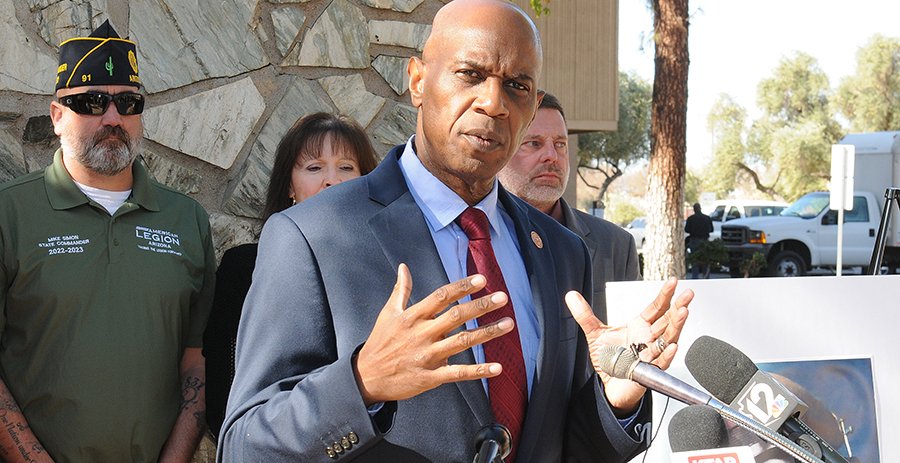Business
Rep. Blackman Unveils Bold Stolen Valor Legislation

A former Army veteran, decorated with a Bronze Star for his service in Iraq, is advocating for stringent penalties against individuals who impersonate military personnel. Rep. Walt Blackman, a Republican from Snowflake, aims to introduce legislation targeting what he terms “Stolen Valor.”
Recognizing past legal challenges, Blackman has crafted HB 2030 to navigate the complexities of First Amendment protections. Unlike previous federal laws that faced challenges, this state law only penalizes individuals who intentionally misrepresent their military status for financial gain.
Blackman emphasizes that the proposed legislation is not just a matter of fraud—it embodies issues of identity theft. “Every veteran in the United States, especially the half a million in Arizona, suffers when someone claims valor they did not earn,” he stated. This sentiment extends to families of fallen soldiers, whose sacrifices are undermined by false claims.
Under HB 2030, impersonating a veteran for job acquisition, government contracts, or benefits would constitute a criminal offense. This extends to using false military claims for political advantage, establishing a clear boundary against fraudulent practices in political campaigning.
The bill addresses instances such as candidates misrepresenting service in Vietnam to garner support. Blackman highlighted the seriousness of such actions, drawing parallels to existing laws against financial deceit.
The motivation for the legislation arose following a personal experience in a previous election cycle. An opponent in the GOP primary presented questionable military credentials, claiming service that was not corroborated by their official military records. This brought the issue of military authenticity into sharp focus.
While Blackman refrained from naming specific individuals during discussions on the legislation, he stressed the need for accountability without appearing vindictive.
Additionally, the proposed law seeks to outlaw the wearing or display of unearned military decorations. Blackman clarified that while the legislation does not explicitly punish the mere display of these medals, it aims to address the misuse of such symbols for personal gain.
The penalties under HB 2030 are substantial. Impersonating a veteran could result in a Class 4 felony, potentially leading to a prison sentence of 2.5 years. If the value of the benefits sought exceeds $50,000, the crime escalates to a Class 2 felony, carrying a presumptive five-year term, with a significant portion of the sentence required to be served before parole eligibility.


















